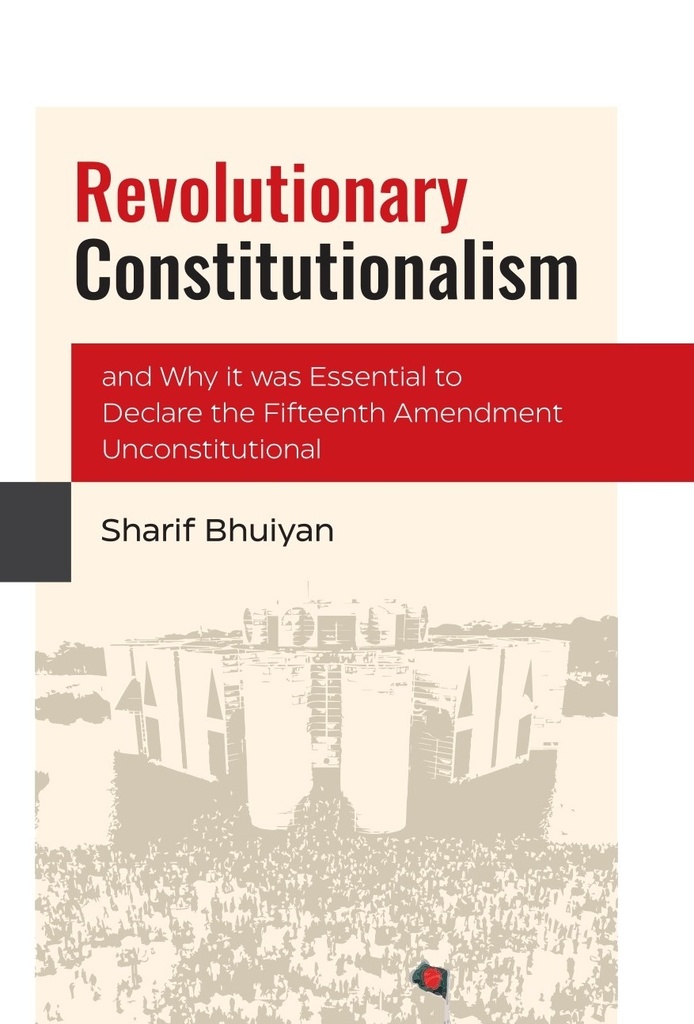
- Shop
- Revolutionary Constitutionalism
Revolutionary Constitutionalism
https://uplbooks.com/shop/9789845066594-revolutionary-constitutionalism-22538 https://uplbooks.com/web/image/product.template/22538/image_1920?unique=331ca27
Tags :
Book Info
This book provides an incisive analysis of how the regime overthrown by the July Revolution constitutionally converted Bangladesh from a republican democracy to a totalitarian necrocracy. This was done by the Fifteenth Amendment of the Constitution. This Amendment— in effect, a wholesale rewriting of the Constitution—destroyed the Constitution by taking away people’s rights to vote and speak. It established a deceased leader as the symbolic head of state. To perpetuate a brutal, despotic regime, the Amendment went so far as to stipulate for thoughtcrimes. The anti-people Constitution crafted by the Fifteenth Amendment was given the status of a holy book that all citizens must believe in and the legislature must never amend or repeal. It is crucial that the Supreme Court declares the Fifteenth Amendment unconstitutional in its entirety to restore democracy, the rule of law, the rights of the people, and to preclude similar amendments in the future. This book also addresses certain constitutional issues relating to the current interim government, including its constitutionality, legitimacy, and tenure.

Sharif Bhuiyan
Sharif Bhuiyan is a Senior Advocate of the Supreme Court of Bangladesh and a Partner and Deputy Head of the law firm, Dr. Kamal Hossain and Associates. He practises in a wide range of areas, including, arbitration, commercial, constitutional, energy and telecommunication law and is consistently ranked as a top-tier legal practitioner by international practitioners’ directories. He appears as lead counsel in major constitutional cases. Bhuiyan holds LL.M. and Ph.D. degrees from the University of Cambridge, UK, where he was also a visiting fellow. He is the author of National Law in WTO Law (Cambridge University Press 2007) and co-editor of International Law and Developing Countries (Brill Nijhoff 2014, UPL 2017).


